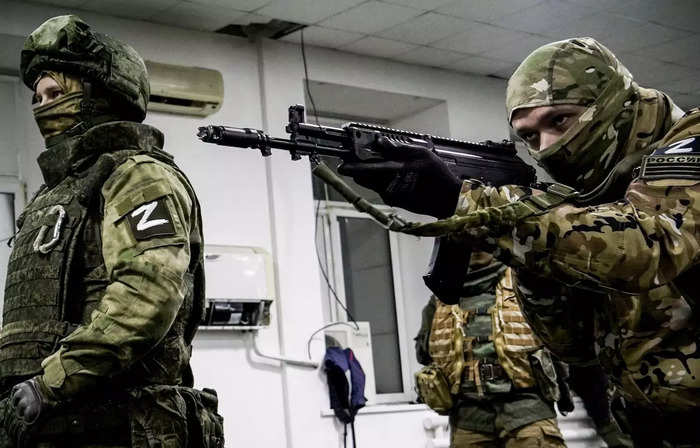Chris Panella

- An ex-convict Russian soldier said officers in Putin's army refused to collect the dead bodies of fallen troops.
- The soldier told The New York Times that it let the Russian military dodge paying their families compensation.
An ex-convict gave horrific insight into serving in the Russian army, saying his officers refused to collect the dead bodies of soldiers from the battlefield so that the Russian military wouldn't have to pay their families, according to The New York Times.
In an interview, the soldier who served in one of the Russian Ministry of Defense's convict units — who was identified as "Aleksandr" — told the Times he was ordered not to collect the bodies of his fellow troops.
He told the Times that officers could register the men as "missing in action," meaning their families couldn't collect compensation for them being killed in battle.
"There were bodies everywhere," Aleksandr said to the Times. "No one was interested in collecting them."
Russia has often downplayed its undeniably large losses in Ukraine.
While officials have only admitted to losing 6,000 soldiers since the full-scale invasion of Ukraine, Western intel earlier this year suggested the number was closer to 60,000.
And last week, researchers with the BBC said they've identified more than 30,000 dead Russian soldiers by name, including 1,300 in the last two weeks alone.
Ukraine also has not released estimates of how many of their troops have died, although a leaked US military assessment earlier this year estimated the number was around 17,000.
Russia's reliance on convict units grew as its conscripted soldiers were decimated in Ukraine.
While mercenaries with the Wagner Group were originally pulling incarcerated soldiers, the Russian Ministry of Defense took over the recruitment process in February, signing up thousands of inmates and promising them salaries and freedom at the end of their contracts.
No comments:
Post a Comment